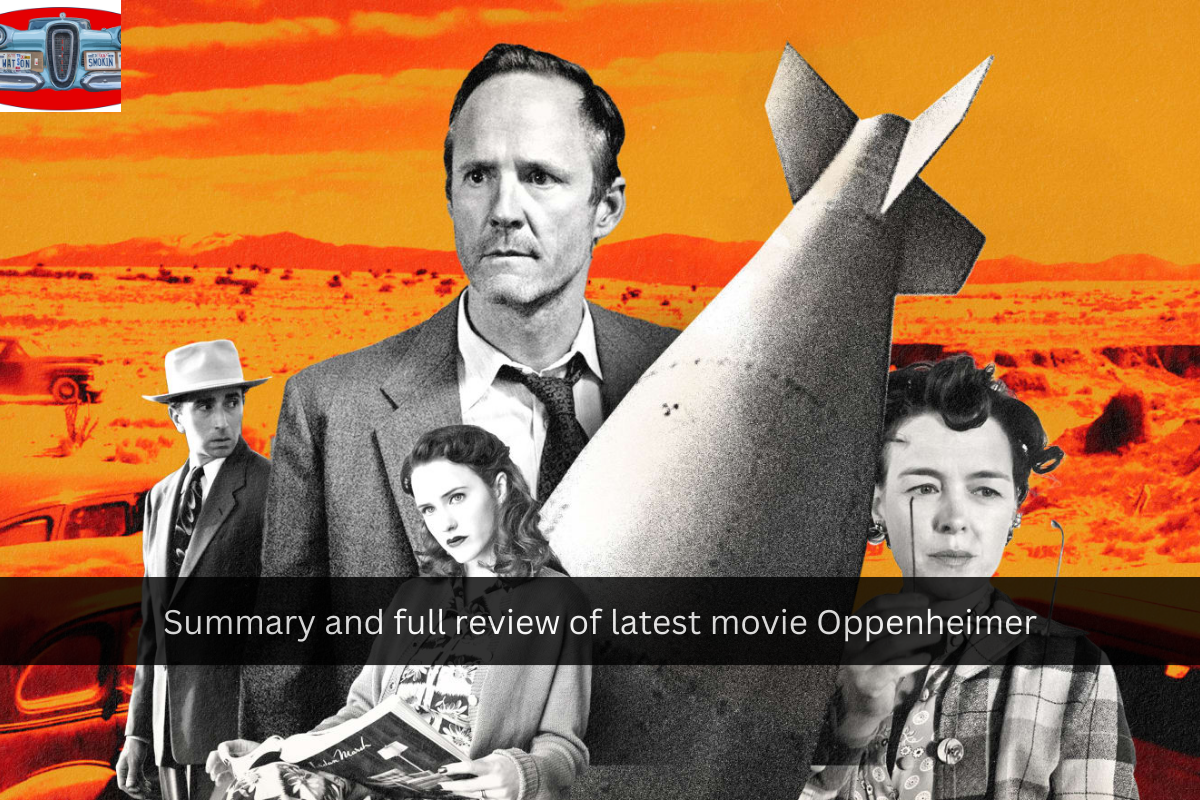Summary and full review of latest movie Oppenheimer: I will be able provide you with some general information regarding the historic theaters that are located around the state. Take into consideration that the information shown here may be out of date; therefore, it is advisable to check with local sources in order to obtain the most recent information.
Summary and full review of latest movie Oppenheimer
I don’t know why I procrastinated on Oppenheimer when there were so many chances to watch it. Since I don’t like Christopher Nolan films, I didn’t buy into the Barbie and Christopher Nolan hype when marketing and TikTok were pushing them on us. I saw Oppenheimer because I love history, especially World War II, and was interested how Nolan would adapt a large biography into a three-hour film.
I almost watched this in New York, but I couldn’t get into Lincoln Center’s film IMAX presentations. I couldn’t imagine spending three hours of my vacation/work trip viewing this, so I saw it when I got home from New York. A suburban IMAX movie at 10:30 AM was pleasant because the cinema was almost empty. This type of movie is best with a full row to myself.
The rise and fall of Robert J. Oppenheimer.
I studied a silly insane amount of academic history books on the atomic age starting from the Curies, so I was already aware with Oppenheimer’s story before watching this movie. I had worries that this would be an America-focused biopic, so I came into this movie with a specific perspective. Because it’s Oppenheimer-based. He initially drinks the Kool Aid that claims we must destroy Japan to finish the war at Los Alamos. Not knowing better.
This film weaves two timelines together. In the black-and-white timeline, Robert Downey Jr. plays Lewis Strauss in 1959 as he seeks the U.S. Secretary of Commerce position. He set Oppenheimer up to lose his job and position because he disagreed with Strauss, who believed we should use the hydrogen bomb on the Soviet Union if the time came.
The alternate chronology begins with Oppenheimer’s education. Every night in London, he struggles with the material. After Bohr advises him, he flies to Germany. Upon receiving his PhD, Oppenheimer teaches quantum mechanics at UC Berkeley, a novel notion in the US. He becomes involved in the Communist Party through his brother and love interest and helps create labor unions for grad students, which puts him in danger.
When the war begins and a secret project is offered, his political views don’t matter when he meets General Leslie Groves. He convinces Groves to let him lead the Los Alamos project, recruits scientists, and works on the bomb for the rest of the film. It builds slowly with scientific drama, government security restrictions, and Oppenheimer’s Berkeley lover’s suicide, but it happens.
After watching the effects of the bomb on the Japanese, Oppenheimer becomes a pacifist and feels guilty for making this film. He will clash with Strauss, who is obsessed with power and social status. Oppenheimer believes people are decent, rejecting the idea of a spy in Los Alamos for years and maintaining a public image. Strauss is threatened, especially after Oppenheimer mocks him in public while he’s sitting there.
Strauss sets up Oppenheimer by giving up his government security file to create a McCarthy-era article about his nuclear energy involvement. Oppenheimer loses his job and lives in obscurity, but Strauss’s mistakes are revealed in the future. The scientific community was incensed by what he did to Oppenheimer, and a man he mistreated early in the movie provides key evidence that Strauss set him up, which is why he was not confirmed.
Also See:
Top 8 Popular Theatre In Texas
The film finishes with a conversation Strauss misread previously. Einstein informs Oppenheimer that he will always carry this remorse when they reunite on the lake years later. People will only be around him for their own benefit, and when it doesn’t, they’ll leave.
Overall Thoughts
A great film, however I believed it should be cut. I think the Strauss trial was superfluous because it set up a gotcha moment when we discover he’s lying, but once Oppenheimer sees the bomb go off, the movie lost pace. I was enthralled with the screen material till then, but I was feeling bored and sucked out of its universe. It’s sort of historically accurate, although Nolan uses creative liberties to increase the drama and particular exchanges when needed.
If you like this Article about Summary and full review of latest movie Oppenheimer please share this Article with your friends and family members.
